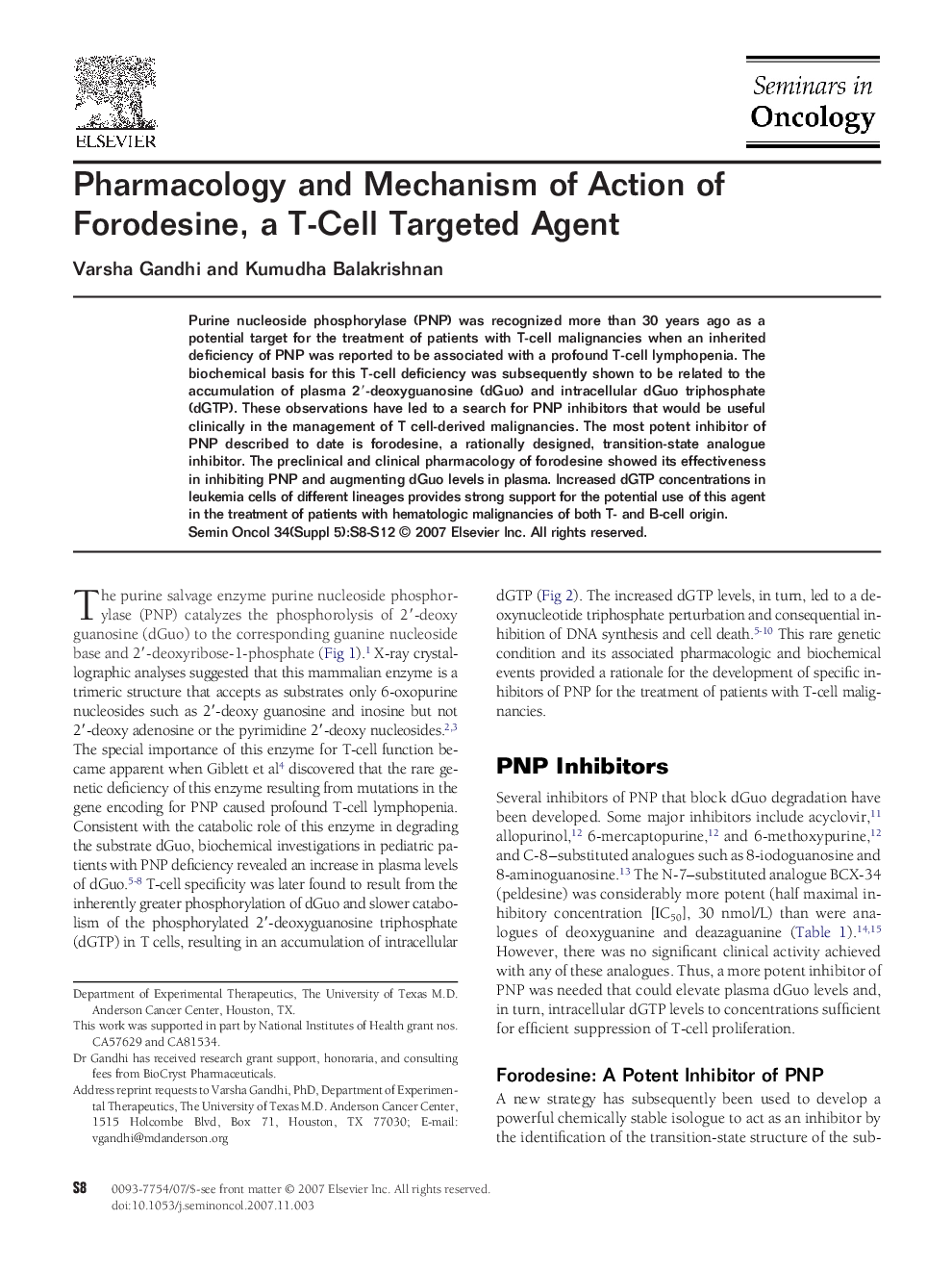| Article ID | Journal | Published Year | Pages | File Type |
|---|---|---|---|---|
| 2163083 | Seminars in Oncology | 2007 | 5 Pages |
Abstract
Purine nucleoside phosphorylase (PNP) was recognized more than 30 years ago as a potential target for the treatment of patients with T-cell malignancies when an inherited deficiency of PNP was reported to be associated with a profound T-cell lymphopenia. The biochemical basis for this T-cell deficiency was subsequently shown to be related to the accumulation of plasma 2â²-deoxyguanosine (dGuo) and intracellular dGuo triphosphate (dGTP). These observations have led to a search for PNP inhibitors that would be useful clinically in the management of T cell-derived malignancies. The most potent inhibitor of PNP described to date is forodesine, a rationally designed, transition-state analogue inhibitor. The preclinical and clinical pharmacology of forodesine showed its effectiveness in inhibiting PNP and augmenting dGuo levels in plasma. Increased dGTP concentrations in leukemia cells of different lineages provides strong support for the potential use of this agent in the treatment of patients with hematologic malignancies of both T- and B-cell origin.
Related Topics
Life Sciences
Biochemistry, Genetics and Molecular Biology
Cancer Research
Authors
Varsha Gandhi, Kumudha Balakrishnan,
